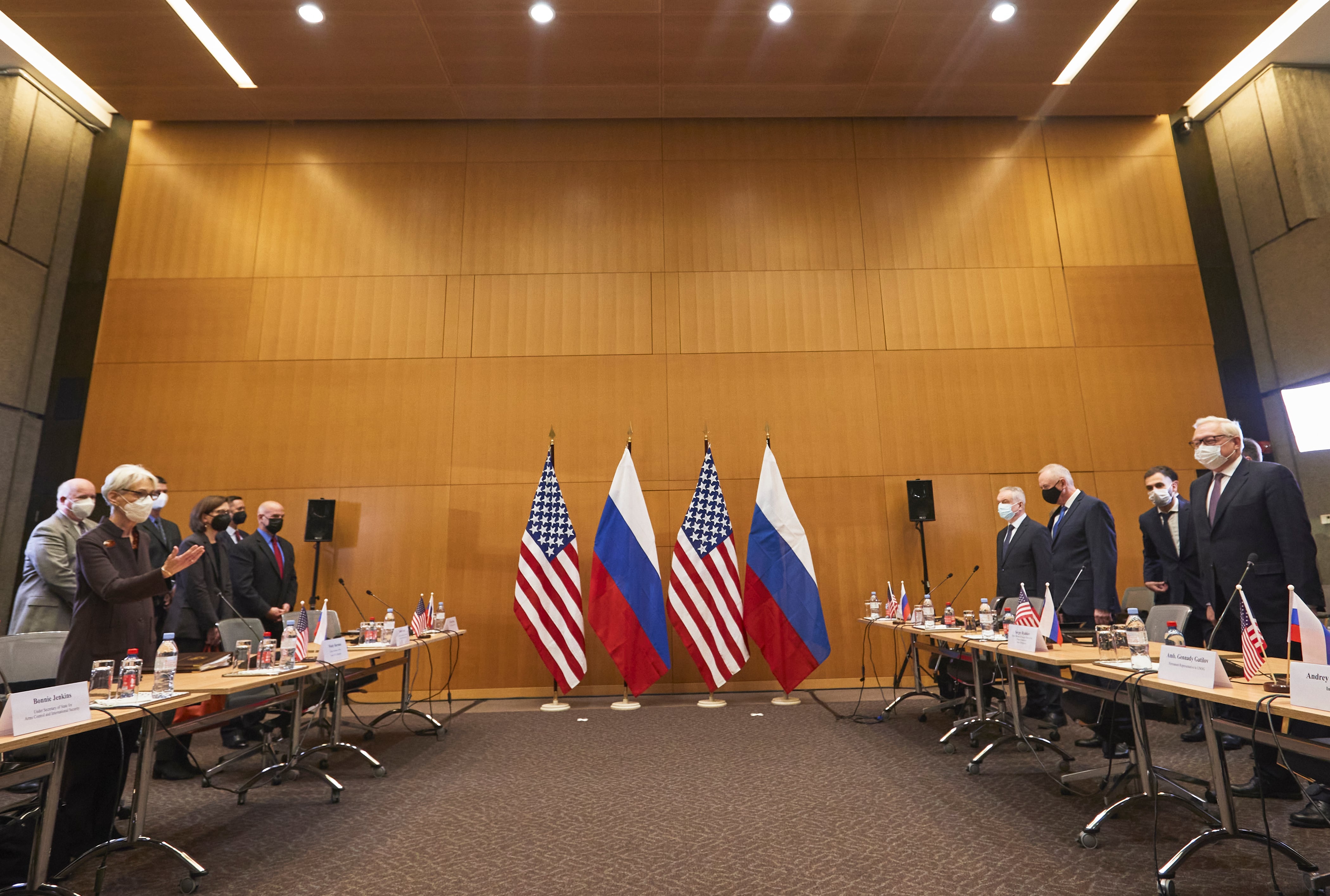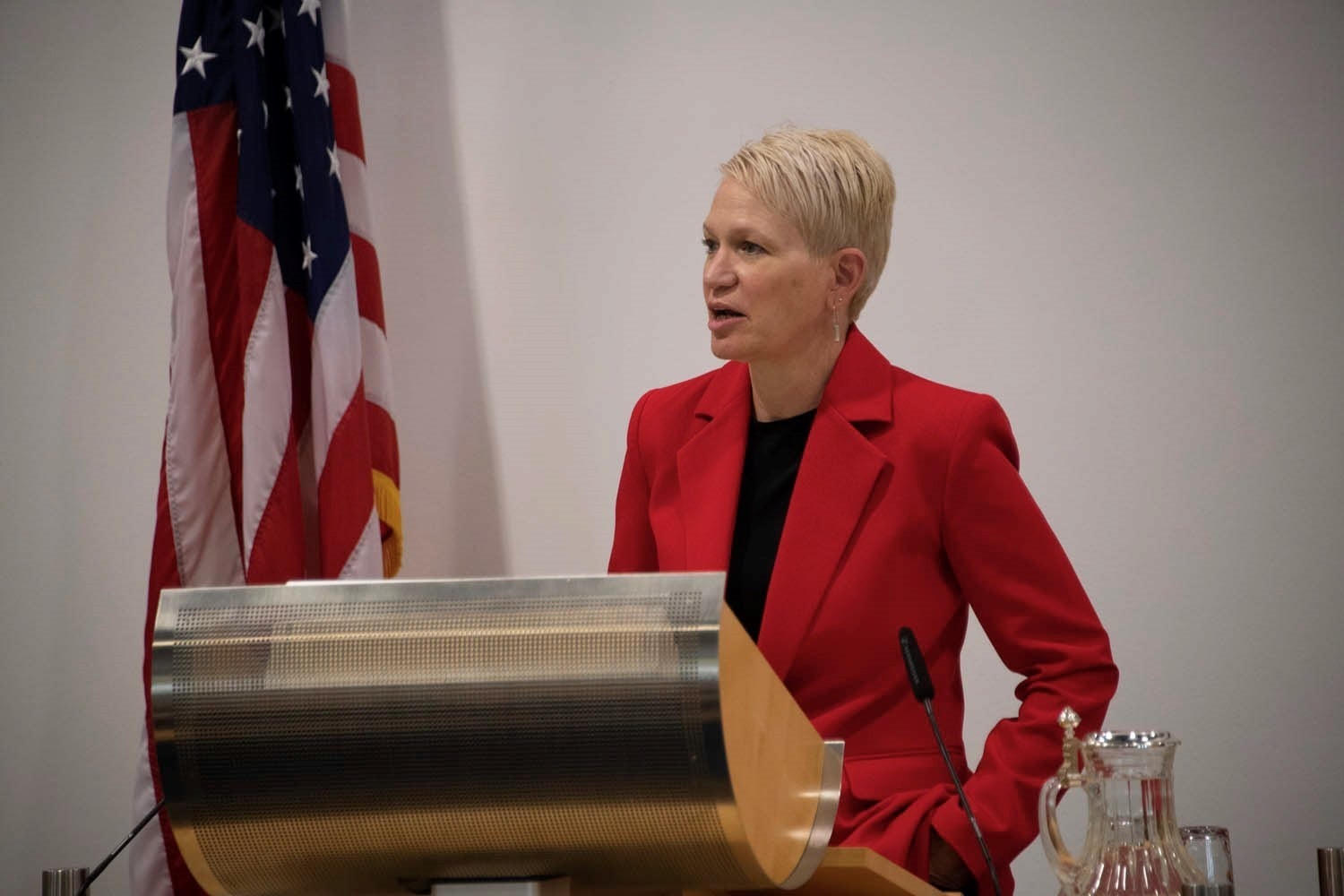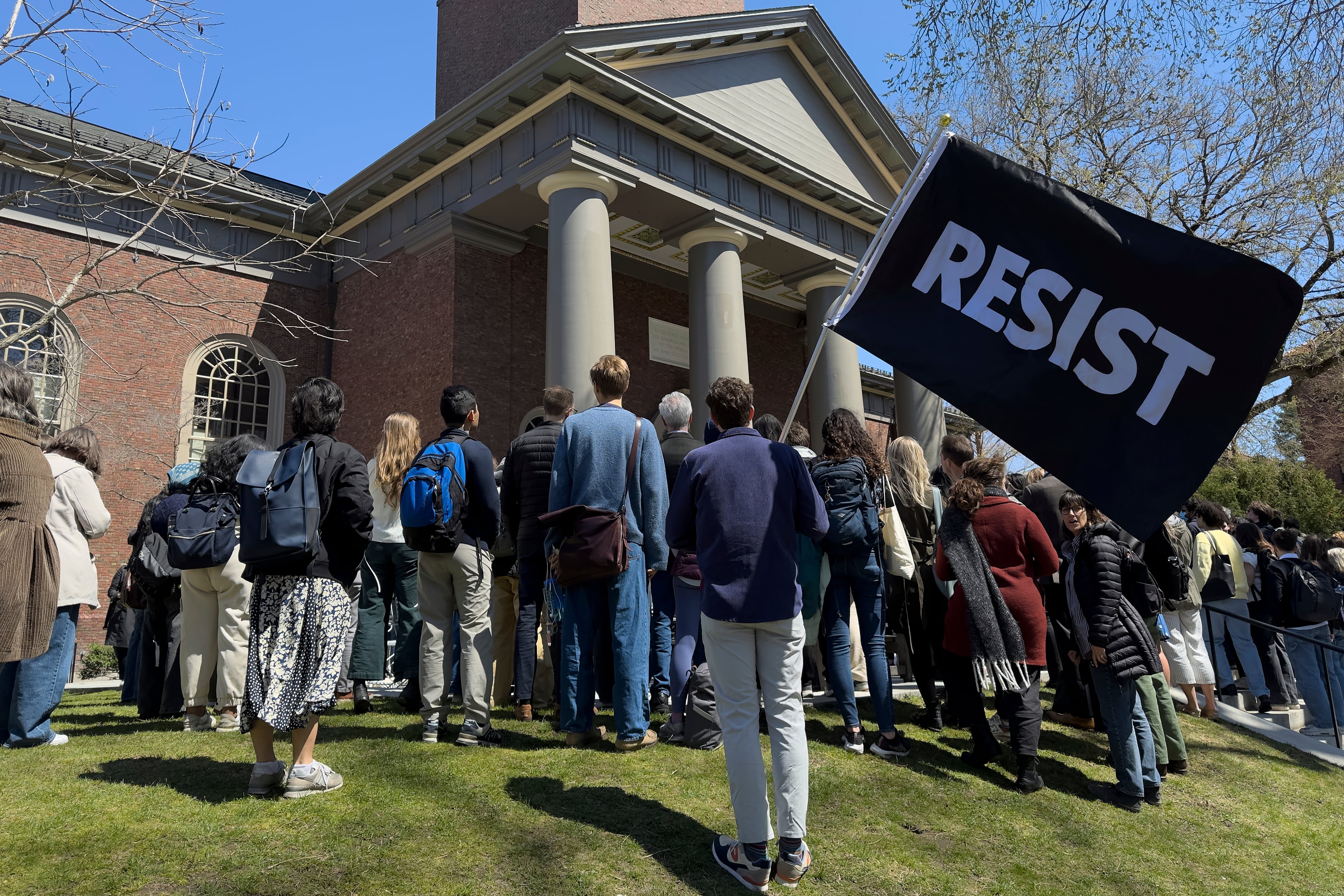WASHINGTON ― A top Pentagon pick for President Joe Biden has criticized the Obama administration’s response to Russia’s 2014 annexation of Crimea from Ukraine as “too slow and too incremental,” at her confirmation hearing Thursday.
GOP and Democratic members of the Senate Armed Services Committee grilled Celeste Wallander, a senior Russia adviser to President Barack Obama in 2014, on past and future U.S. lethal aid for Ukraine. Wallander, nominated to be assistant secretary of defense for international security affairs, said it was the wrong call not to send weapons to Ukraine.
“I believe that our response in 2014 was too slow and too incremental. And it’s confirmed by the lessons that I learned, and that I believe others in the national security community learned, to better address Russia’s ongoing aggression,” said Wallander, who would would oversee U.S. military security cooperation and foreign military sales.
Later, Sen. Tom Cotton, R-Ark., asked whether the Obama administration had made a miscalculation by not sending Ukraine lethal weapons for fear of provoking a war with Russia. Wallander agreed.
Cotton noted the last administration sent such aid, “and we haven’t had World War III yet.”
“I believe one of the lessons I learned is that it would have been appropriate and necessary to provide Ukraine with what it needed to defend its territory, including the weapons you suggest,” Wallander said.
Tension on the border
The hearing comes as Russia-U.S. negotiations in Geneva and a subsequent NATO-Russia meeting failed to narrow the gap on Moscow’s security demands amid a buildup of Russian troops near Ukraine. Moscow demanded a halt to NATO expansion, but Washington and its allies firmly rejected that as a nonstarter.
The Biden administration has threatened, if Russian President Vladimir Putin invades Ukraine, to levy stiff sanctions, reinforce NATO’s eastern flank and further arm Ukraine beyond the $450 million the U.S. sent in military aid in 2021. But there’s been a bipartisan call from lawmakers, who feel the administration needs to take a more muscular approach to effectively deter Putin.
At Thursday’s hearing, when Wallander told Sen. Richard Blumenthal, D-Conn., she would look into whether more weapons should be sent to Ukraine, he pushed back.
“I assume you want to do more than look at it because time is not on our side here,” Blumenthal said. “I hope that you would urge, as imminently as possible ― even before your confirmation perhaps ― that the United States take more aggressive and strong action to bolster Ukrainian defenses with more radar systems, with the Javelin anti-armor missiles, with Stinger and other anti-aircraft missiles, and other capabilities.
“That will show Vladimir Putin we mean business, because in my view that’s the only sign he will respect, other than strong economic sanctions.”
Wallander replied: “I agree with you those are core requirements Ukraine needs in the face of the force that Russia has amassed.”

Since 2017, Wallander has been the president and chief executive of the U.S. Russia Foundation, created to strengthen ties between the two countries. While at the National Security Council, she was senior director for Russia and Eurasia, and before that she was deputy assistant defense secretary for Russia, Ukraine and Eurasia.
In separate exchanges about the potential for a Russian invasion of Ukraine, Wallander painted a grim picture: Russia’s movement of heavy armored forces from the east to the west was of “considerable concern” and signaled the situation “may be escalating.”
“I have a long career of studying the Soviet and then Russian military,” she said, “and it is my assessment ... the Ukrainians would fight admirably and well, and would be quite effective in imposing enormous costs on Russian military forces. But the signals we’re hearing from the Kremlin suggest ... a potential for a decisive and swift military strike, and it’s very concerning.”
Wallander appeared at her confirmation hearing alongside Melissa Dalton, who is nominated to be assistant secretary of defense for homeland defense and global security.
Aerospace Corporation executive John Plumb, a former White House and defense official who is nominated to be assistant secretary of defense for space policy, was also on the panel of nominees. His portfolio would include nuclear issues, missile defense, cybersecurity and efforts to counter weapons of mass destruction, based on a recent reorganization.
Days after U.S. negotiators floated the idea to Russia of reciprocal limits on missile deployments in Eastern Europe and the size and scope of military exercises, the GOP picked on that possibility.
Asked by Cotton about the prospect of the U.S. bargaining with Russia over its Aegis Ashore missile defense system, based in Romania, Plumb ― who said he helped establish the system there during the Obama administration ― told the committee he’d be “very hesitant” to do that.
In an exchange with Sen. Marsha Blackburn, R-Tenn., Wallander said she supports a “robust calendar” of exercises for U.S. Europe Command.
Beyond the Russia crisis, Sen. Josh Hawley, R-Mo., had Wallander affirm she believes NATO nations need to spend more than 2% of their respective gross domestic product on their own defense ― the alliance’s target.
Hawley, part of a larger blockade on State Department and Pentagon nominees, extracted a similar pledge from Julianne Smith before she was confirmed U.S. ambassador to NATO in November.
Strategic forces
At the hearing, lawmakers asked Plumb and Wallander about reports that Biden was considering ― over the objections of allies ― an American a promise not to be the first to use a nuclear weapon. The Obama administration weighed a “no first use” declaratory policy but opted to leave U.S. policy ambiguous.
“I don’t believe that a ‘no first use’ policy is in the best interest of the United States,” Plumb said.
Asked about opposition from allies under the protection of America’s nuclear umbrella, Wallander said she too was opposed to “no first use.”

“That is a fundamental reason why I do not support a no-first-use declaratory policy: because I believe it would create concerns not about the credibility of American defense commitments to our allies, in addition to possibly undermining our credibility in the eyes of our adversaries,” she added.
Several lawmakers questioned Plumb on the need for norms of behavior in space in light of Russia’s recent direct-ascent anti-satellite weapon test that created more than 1,500 pieces of new debris, according to the U.S. State Department. The Biden administration is developing proposals for international space norms, and Plumb told lawmakers he holds “some deep kernel of hope” the U.S. can reach an agreement with Russia and China on those norms in the near future.
“At the same time, nothing there would, in my mind, prevent us or preclude us from pursuing both offensive and defensive capabilities to ensure that we can defend our own assets and prevail in a conflict,” Plumb said.
He later posed that the best way to mitigate the anti-satellite weapons threat is through a resilient architecture “able to withstand a blow to one or several satellites.”
Plumb also weighed in on progress the Space Force has made since its creation, following a question from Sen. Tim Kaine, D-Va., about how he would handle “growing pains” associated with establishing a new service. Plumb said he would work with the Space Force to ensure it remains focused on speeding up acquisition processes and countering emerging threats.
“The speed of Pentagon processes does not match the speed of the threat right now, and we need to work to fix that,” Plumb said.
Asked about efforts to transition the space traffic management mission from the Defense Department to the Commerce Department, Plumb said he supports the move, elaborating in his written responses to advance policy questions that the shift “would allow DOD to properly refocus resources on defending the nation.”
Space Policy Directive 3, released in 2018, mandated the transition, but progress toward implementing the change has been slow. Sen. Jeanne Shaheen, D-N.H. raised concerns about a perceived lack of transparency from the Space Force about the cost of performing the space traffic management mission, making it hard for lawmakers to know how much funding to appropriate to the Commerce Department.
Plumb committed to working with the Space Force to determine what resources and training are needed to support the shift.
The Associated Press contributed to this report.
Joe Gould was the senior Pentagon reporter for Defense News, covering the intersection of national security policy, politics and the defense industry. He had previously served as Congress reporter.
Courtney Albon is C4ISRNET’s space and emerging technology reporter. She has covered the U.S. military since 2012, with a focus on the Air Force and Space Force. She has reported on some of the Defense Department’s most significant acquisition, budget and policy challenges.




